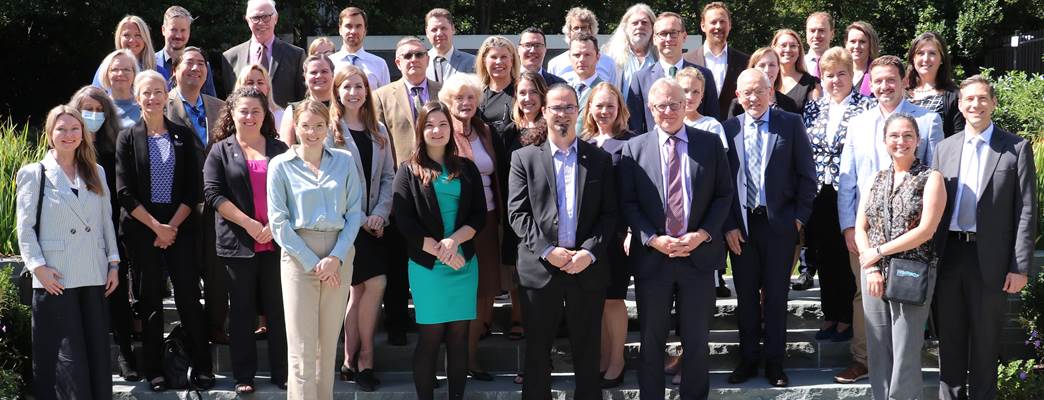The seminar tackled the question of how to create a sustainable future for the Arctic landscape, both environmentally and culturally in the years to come. Central to the debate was the role of science diplomacy and the transition to renewable energy.
The event highlighted the important relationship between the U.S. and Norway, whose close cooperation on Arctic themes is both long and far-reaching. The role of collaboration, especially in times of crisis, was also stressed. “Understanding the Arctic requires a pan-Arctic effort,” stated Jennifer Mercer of the National Science Foundation.
The continued relevance of Arctic research, which is only expected to heighten, was also underlined. “The demand for knowledge is not going to diminish,” said John Farrell of the U.S. Arctic Research Commission.
H.E. Anniken Krutnes, Ambassador of Norway to the United States, opened the seminar, citing the importance of the Arctic and the cooperation that is needed to solve the challenges the region faces.
The members of the first moderated discussion, “From Blue to Smart Research Collaboration between Norway and the United States,” were Frode Mellemvik, Director, High North Center for Business and Governance, Nord University, Bodø; Patti Bruns, Secretary-General, Arctic Mayor’s Forum; Marianne Bahr Simonsen, CEO, KRAFT Center for Sustainable Societal Development in the North; Jennifer Mercer, Head of Arctic Science Section, National Science Foundation; and John Farrell, Executive Director of the U.S. Arctic Research Commission.
The event continued with a discussion on energy with the title “Harnessing the Power of the North: Norwegian and U.S. Perspectives on Renewable Energies in the Arctic.” The conversation centered on the transition to green energy, and the importance this shift holds for both security and economic purposes.
Members of this discussion were Anu Fredrikson, Executive Director at Arctic Frontiers; Kikki Flesche Kleiven, from the University of Bergen and Bjerknes Research Centre; Ian Laing, Executive Director at Institute of the North; Morten Hillmann-Brugård, Funding Manager at Freyr Battery; Chris Rose, Founder and Executive Director at Renewable Energy Alaska Project (REAP); Nagruk Harcharek, Vice President of Private Equity and Arctic Development at Ukpeaġvik Inupiat Corporation; and Penny Gage, Managing Director at Launch Alaska.
